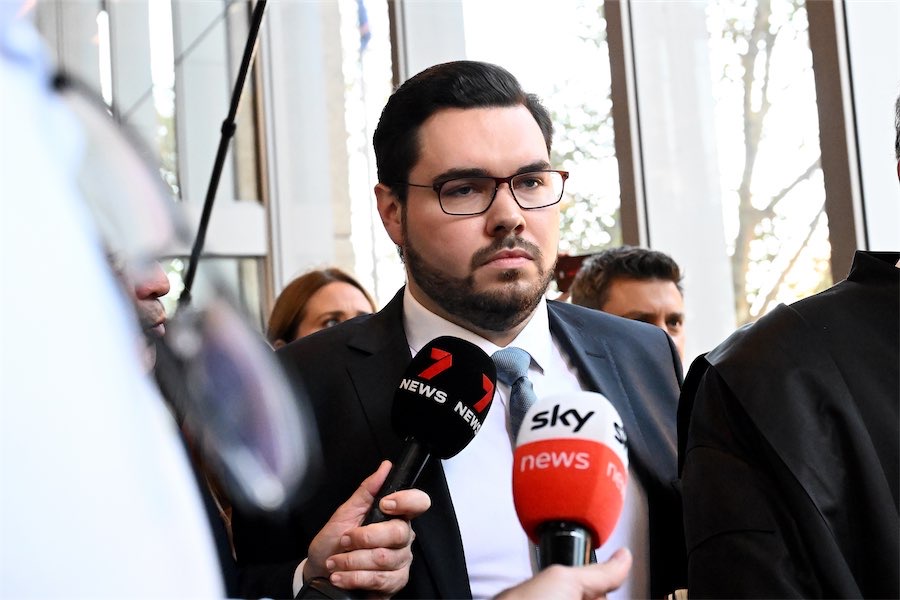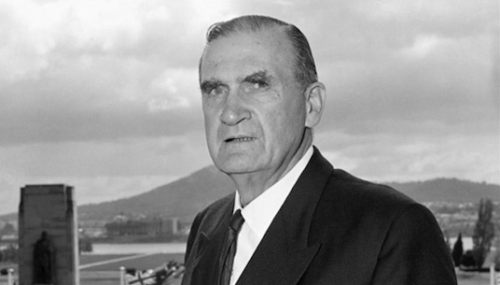AN insult to Australians. This is what Federal Treasurer, Scott Morrison, did when he so vigorously dismissed the call by Bill Shorten for a Royal Commission into the banking sector.

Australians are just not that stupid. Having the Royal Commission into the unions was fine by the Federal Treasurer – but now he argues for not looking at the other side of the coin.
A more sensible criticism is that a banking sector Royal Commission is just too narrow. Any inquiry should go much wider. Shadow Treasurer Chris Bowen took the first step suggesting a Royal Commission would “look at how widespread instances of illegal and unethical behaviour are in the financial services industry”.
The Liberals let the genie out of the bottle. The John Dyson Heydon “Royal Commission into Trade Union Governance and Corruption” set the political precedent.
What was clear is that this Royal Commission was deliberately limited in scope from examining the mates of the conservative side of politics. Unionists were effectively accepting bribes and cheating their members but who was paying them?
Corruption is corruption. Corruption takes many forms, usually starting with small things and insidiously becoming pervasive. Corruption undermines democratic processes, favours a tiny few over the broad community and divides communities. And the question remains: how do some developers, bankers, wealthy individuals and businesses inappropriately influence unions, Federal, state and local governments?
Opposition Leader Shorten is right to raise the issue of a Royal Commission into the banking sector and how ironic that Scott Morrison calls it a “political distraction”.
A wide-ranging Royal Commission into the financial dealings of wealthy Australians is long overdue. Bankers and developers are a great starting point. It is most likely that the vast majority will be above board – but, as with the unions, it only takes a small number of bad apples to have a huge impact on the broader community.
Corruption is about lack of fairness. In September, 2014, the Tax Justice Network released a report identifying the community was missing out on around a billion dollars a year thanks to the manipulations of the four largest banks in Australia as they aggressively work to minimise the amount of tax they pay.
The Tax Justice Network identified more than $8 billion in tax avoided when these four were joined by another 19 tax-aggressive companies. As Michael West identified in Fairfax media in June, 2014, the coal mining giant Glencore had paid just $400 million in tax on an income of $15 billion. Meantime, the Australia Institute identified $17.6 billion of government subsidies and assistance to the mining industry.
Public servants can expect to pay more than a third of their salary in tax. Companies are allowed to pay less – with corporate tax rates around 30 per cent.
However, many tax-aggressive companies find ways to avoid even paying this amount. Political parties have not held these companies to account. It’s time for a Royal Commission to do just that – give clear guidelines as to what legislation is needed to ensure they stop cheating and pay their fair share.
A Royal Commission must also scrutinise wealthy individuals. The Panama Papers, leaked from law firm Mossack Fonseca, provide the catalyst for a Royal Commission to be extended to wealthy individuals.
The International Consortium of Investigative Journalists has provided a brilliant insight into how so many wealthy individuals cheat the community. Enough is enough.
The discrepancy between the rich and the poor grows. In 2015, the ABS Household Survey identified the lowest quintile in Australia having a household income of just over $25,000. The highest quintile earns 10 times that amount at just over $260,000. The “trickle-down” argument is regularly put by the conservatives with the most popular form suggesting corporate tax breaks will encourage growth and jobs. A Royal Commission provides the opportunity to examine the “trickle-up” reality that increases the discrepancy between the “haves” and the “have nots”.
Scott Morrison constantly repeats the mantra: “We must live within our means”. Insulting. Our means would be so much more extensive if we stopped subsidising the mining industry and ensured everyone paid their fair contribution to community well-being.
Who can be trusted?
In a world of spin and confusion, there’s never been a more important time to support independent journalism in Canberra.
If you trust our work online and want to enforce the power of independent voices, I invite you to make a small contribution.
Every dollar of support is invested back into our journalism to help keep citynews.com.au strong and free.
Thank you,
Ian Meikle, editor





Leave a Reply